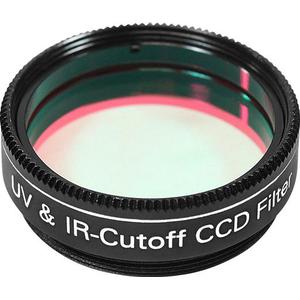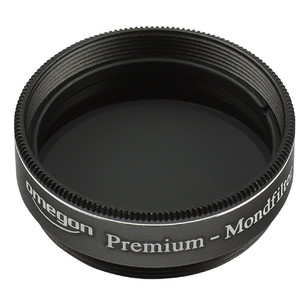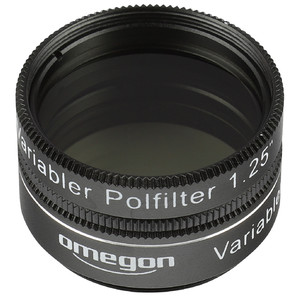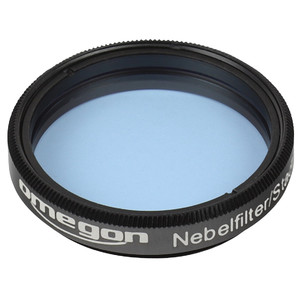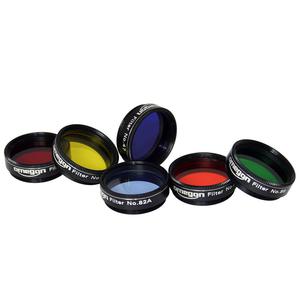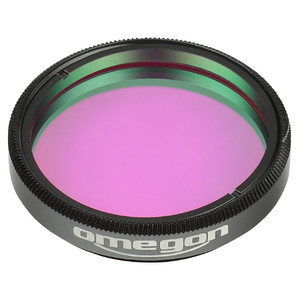Tyvärr har den här beskrivningen ännu inte översatts till svenska, så du hittar en engelsk artikelbeskrivning här.
Omegon deep sky broad-band filter - increase the contrast of deep sky objects
The Omegon deep sky filter boosts the contrast of deep sky objects. It can be used for both visual observing and astrophotography. The filter blocks artificial light sources, bringing nebulae back into view.
For visual observing and small telescopes
Have you ever looked at a photo of the Earth taken from space at night? A sea of artificial light extends over the continents. Street lamps, building lights and other artificial light sources can rival the light from astronomical objects available to astronomers.
Using a deep sky filter is the trick for seeing objects clearly, despite this light pollution. This broad-band filter is even suitable for smaller telescopes.
For urban astrophotography
Even comparatively short exposures will normally show an extremely bright sky under light-polluted city skies. But the deep sky filter lets you take the most beautiful exposures even here. You can extend your exposure time while still keeping a dark clear sky. You will have more contrast and the night sky will remain dark - and with your astronomical object clearly visible.
Keep the good, throw out the bad - there are good and bad wavelengths
The deep sky filter only passes the light which is important for observing. These are mainly the hydrogen lines at 486nm and 656nm and the doubly-ionized oxygen lines at 496nm and 501nm. Nebulae, for example the Orion nebula, only shine within these tiny regions of the spectrum.
The light from mercury and sodium vapour lamps, the normal artificial light sources, are blocked.
The advantages in a nutshell:
- deep-sky filter for visual observing and astrophotography
- plane-optical surfaces, dielectrically coated
- universal broadband filter for getting started in observing that uses filters
- blocks artificial light sources
- 1.25" filter thread for screwing into eyepieces and camera adapters
